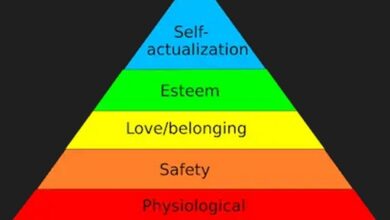Psychology
Psychology
Psychology is the scientific study of the mind and behavior. The study of this area is multifaceted and includes sub-fields such as areas of human development, sports, health, clinical behavior, social and cognitive processes. In Englopedia.com you can find the fine glimpses of psychology with fine notes and explanation.
The word “psychology” comes from the ancient Greek psyche, meaning “mind”, and logos, meaning “knowledge or study”. As it is a science, it tries to investigate the causes of behavior. Consequently, it uses systematic and objective observation, measurement and analysis procedures, supported by theoretical interpretations, generalizations, explanations and predictions.
Englopedia.com will elaborate that Psychology is a very young science , with most of the advances happening in the last 150 years. However, its origins date back to ancient Greece, between 400 and 500 BC The emphasis was philosophical, with great thinkers like Socrates influencing Plato, who in turn influenced Aristotle.
Englopedia.com make you aware that Psychologists’ work is highly varied, but they all share one overriding goal. That goal is to help people have a better life. Our daily lives are profoundly impacted by the way we interpret the hundreds of stimuli (positive or negative) that we receive every day. That is, quality of life occurs when these stimuli are correctly absorbed and given meaning, so as not to harm our lives.
The experts of Englopedia work on the said category more intensively than other ones and make it updated according to the new trends so you may get succeed in this competitive environment.
-

How to stop apologizing for everything Why do we apologize
Does this sound familiar to you?: You go down the street, a person pushes you and you apologize. You apologize every…
Read More » -

Emotional dependence occurring on couple Symptoms causes
It is natural that in relationships a certain desire to feel affection and have intimate contact with the loved one…
Read More » -

Imposter syndrome definition experiences that may indicate
Definition of Imposter syndrome Impostor syndrome is directly related to very low self-esteem. In this case, the person does not…
Read More » -

Different types of eating disorders definition and causes
It is estimated that eating disorders affect more than 70 million people worldwide, thus affecting the physical and mental health…
Read More » -

What is self-control and What is self-control for
What is self control? self-control is nothing more than the power we have to master our daily actions or thoughts. This…
Read More » -

Types of jealousy Keys to managing jealousy
Jealousy is a manifestation of insecurity that arises from the fear of losing something or someone in a unique way.…
Read More » -

What is Toxic friendship types How to identify
Toxic friendship can cause emotional damage, since friends are the ones with whom we usually share a large part of…
Read More » -

Reverse psychology definition phases and how to use it
Reverse psychology The definition of Reverse psychology is persuading someone to do something by asking them to do the opposite. For example,…
Read More » -

9 Types of self-esteem and their characteristics
The types of self-esteem can be classified into several levels, according to the best known and most used models: Hornstein and Ross. Self-esteem…
Read More » -

What is Emotional memory what is it and what is its biological basis
Memories focus not only on the events that occurred, but also on the physiological responses that occurred simultaneously; Indeed, the emotional intensity…
Read More »